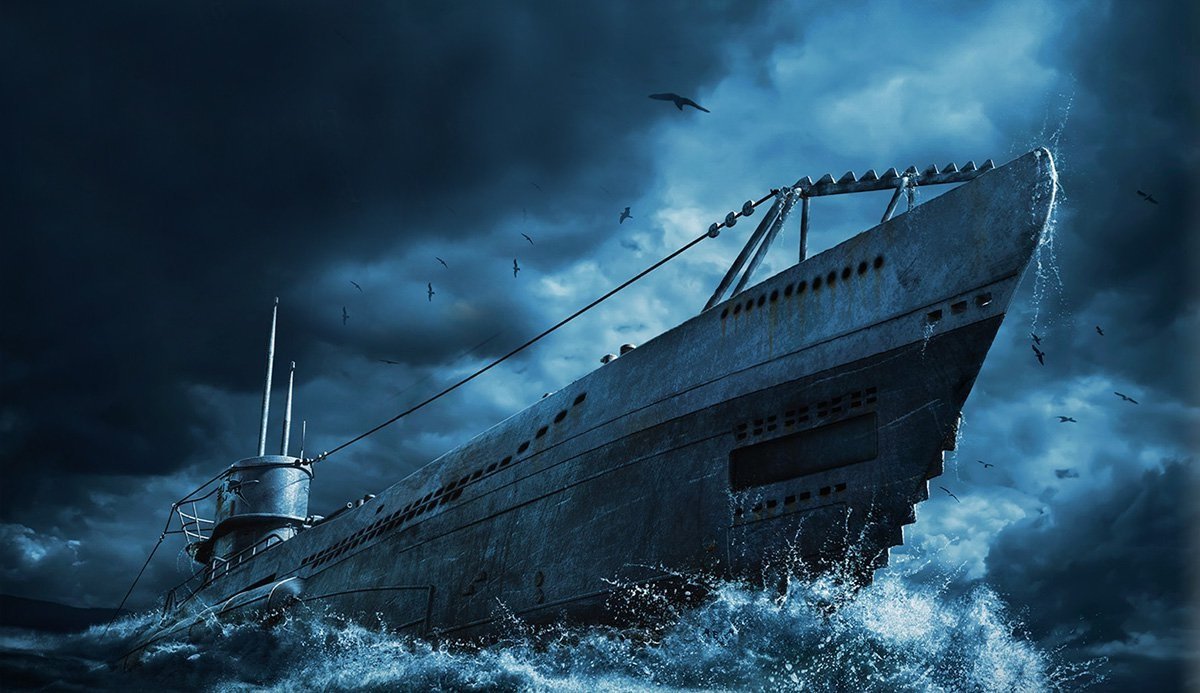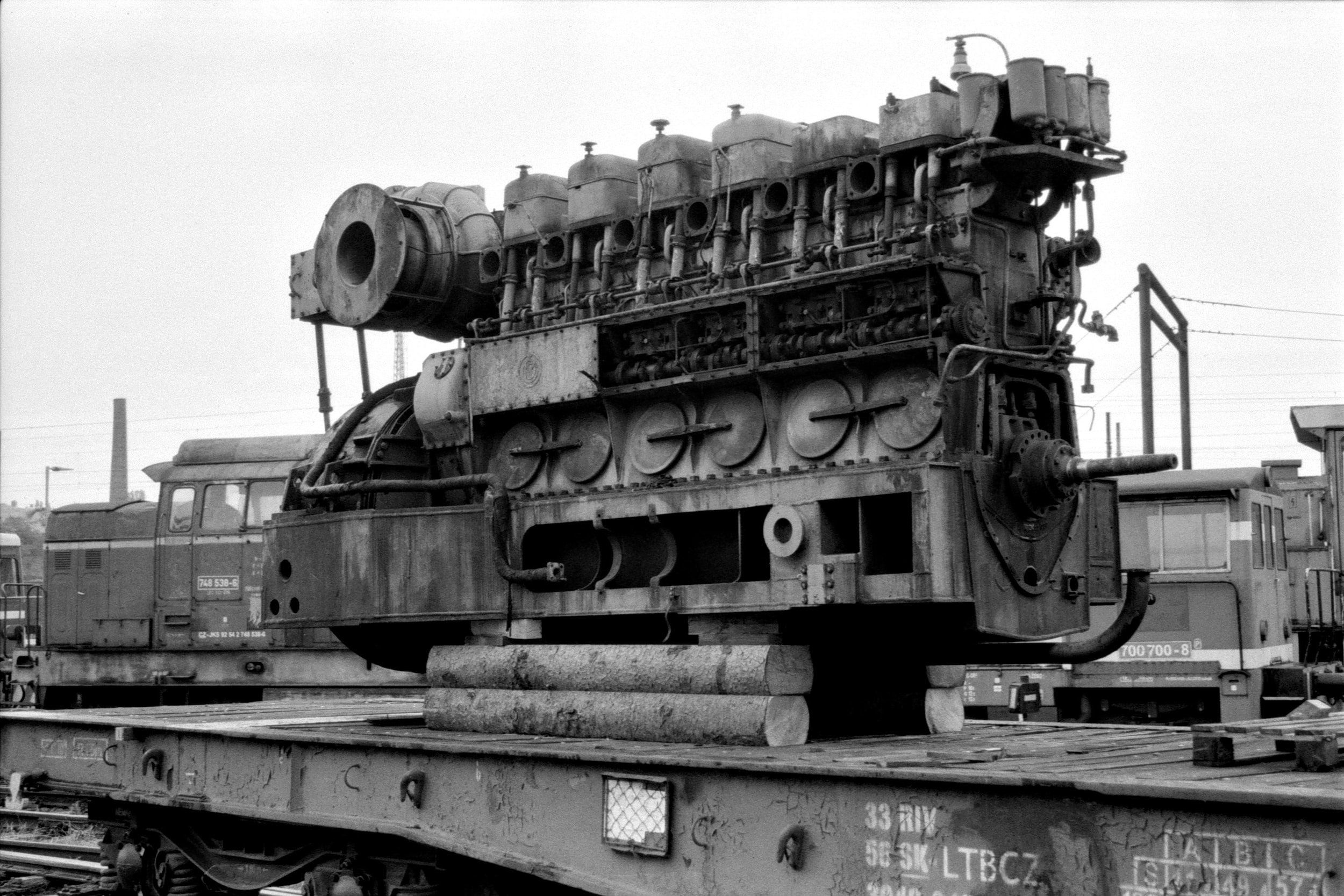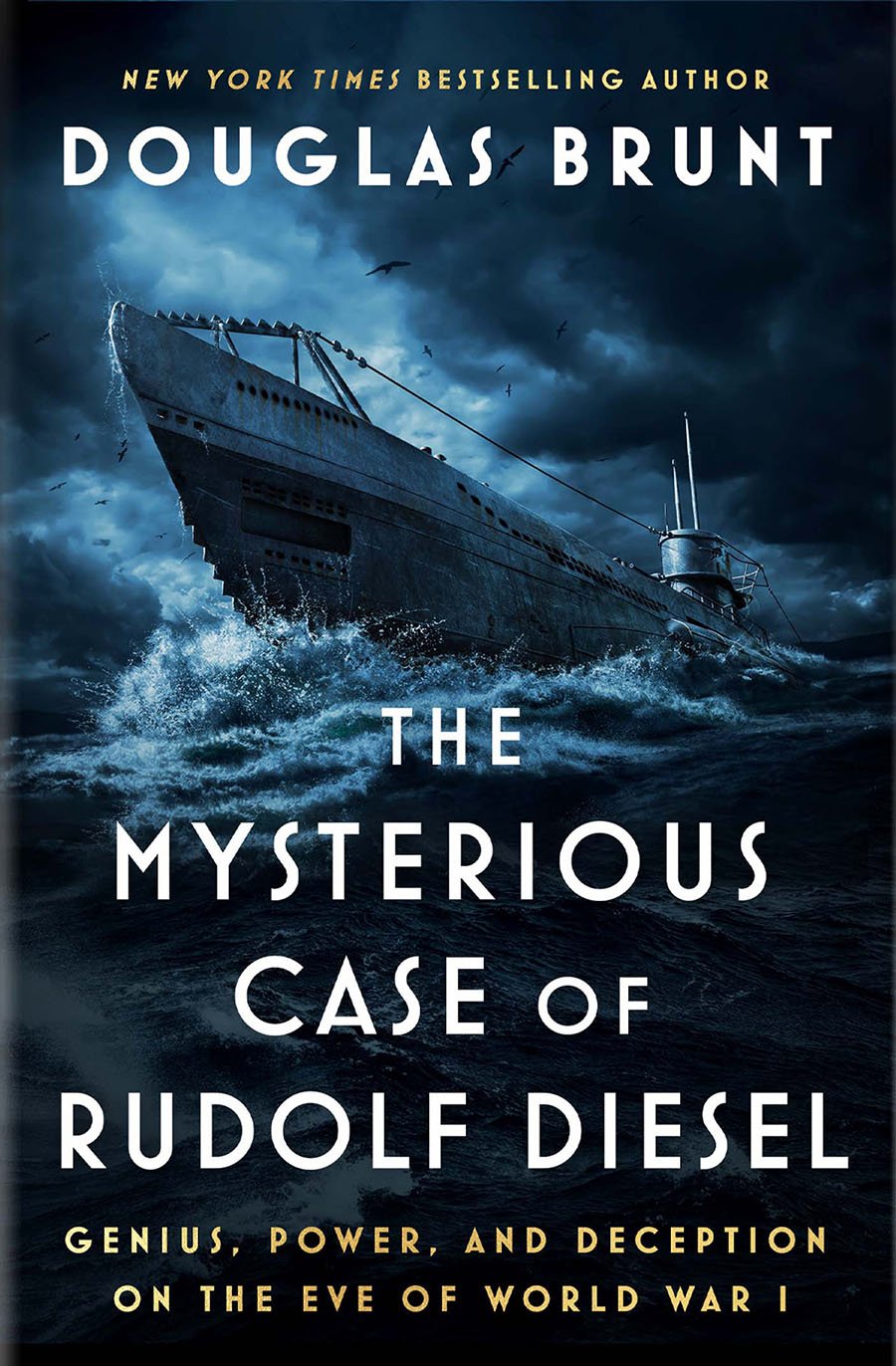
THE MYSTERIOUS CASE OF RUDOLF DIESEL
GENIUS, POWER, AND DECEPTION ON THE EVE OF WORLD WAR 1
“[A] thrilling investigation...Brunt’s audacious yet surprisingly tenable theory makes for a wildly enjoyable outing.” —Publishers Weekly (starred review)

The hidden history of one of the world’s greatest inventors, a man who disrupted the status quo and then disappeared into thin air on the eve of World War I—this book answers the hundred-year-old mystery of what really became of Rudolf Diesel.
September 29, 1913: the steamship Dresden is halfway between Belgium and England. On board is one of the most famous men in the world, Rudolf Diesel, whose new internal combustion engine is on the verge of revolutionizing global industry forever. But Diesel never arrives at his destination. He vanishes during the night and headlines around the world wonder if it was an accident, suicide, or murder.
After rising from an impoverished European childhood, Diesel had become a multi-millionaire with his powerful engine that does not require expensive petroleum-based fuel. In doing so, he became not only an international celebrity but also the enemy of two extremely powerful men: Kaiser Wilhelm II of Germany and John D. Rockefeller, the founder of Standard Oil and the richest man in the world.
The Kaiser wanted the engine to power a fleet of submarines that would finally allow him to challenge Great Britain’s Royal Navy. But Diesel had intended for his engine to be used for the betterment of mankind and refused to keep the technology out of the hands of the British or any other nation. For John D. Rockefeller, the engine was nothing less than an existential threat to his vast and lucrative oil empire. As electric lighting began to replace kerosene lamps, Rockefeller’s bottom line depended on the world’s growing thirst for gasoline to power its automobiles and industries.
At the outset of this new age of electricity and oil, Europe stood on the precipice of war. Rudolf Diesel grew increasingly concerned about Germany’s rising nationalism and military spending. The inventor was on his way to London to establish a new company that would help Britain improve its failing submarine program when he disappeared.
Now, New York Times bestselling author Douglas Brunt reopens the case and provides an astonishing new conclusion about Diesel’s fate.
ABOUT THE BOOK

“Brunt’s audacious yet surprisingly tenable theory makes for a wildly enjoyable outing.” — Publishers Weekly (starred review)
PRAISE
“Equal parts Walter Isaacson and Sherlock Holmes, The Mysterious Case of Rudolf Diesel yanks back the curtain on the greatest caper of the 20th century in this riveting history.” — Jay Winik, New York Times best selling author of 1944: FDR and the Year that Changed History
“Outstanding - Brunt mixes a historian's respect for research with a novelist's eye for character, adds fascinating context and connections, and reaches a conclusion worthy of James Bond - literally.” –Lee Child, #1 New York Times bestselling author
“The Mysterious Case of Rudolf Diesel is a page turning crime thriller that also delivers a significant new understanding of the forces that shaped the outcome of World War I and beyond. This fascinating story, told in the most vivid fashion, about a name so many recognize has been missed by true crime aficionados and historians alike -- until now. An important addition to 20th century history”. –Dan Abrams, ABC News Chief Legal Analyst and bestselling author of Alabama v. King
“Douglas Brunt delivers an unputdownable piece of nonfiction that reads like a taut thriller. Insightful, suspenseful, and thoroughly enjoyable, you will be absolutely captivated!” —Brad Thor, #1 New York Times bestselling author of Dead Fall
“I loved this book as mesmerizing, you-can’t-make-this-up history about political leaders, inventors, and robber barons in the run-up to World War One; but I also devoured it as one of the strangest celebrity disappearing acts in modern history. Absolutely riveting.” –Chris Bohjalian, #1 New York Times bestselling author of The Flight Attendant and The Lioness

Douglas Brunt's own introduction to his fascinating new work offers some insights for readers and book groups to the story behind the story.
“THIS BOOK BEGAN in 2015 when I bought an old boat. It was a thirty-eight-foot runabout built in 1996 with the original gasoline engines. I stood on the dock by my new purchase and spoke with the gentleman who owned the boatyard. He’d run the yard for decades, having taken it over from his father, and the whole place appeared frozen in the 1950s. The man’s face was rough and tanned from the sun and salt air, his fingers like stones. He rolled his own cigarettes. I asked him what he thought I should do to fix up the boat.
He said that a boat like this should have Diesel engines, not gaso- line. I had always thought one engine delivered on the same promise as any other, so I asked him why. He launched into his reasons: that on my two-hundred-gallon fuel tank I’d get twice the range; that I wouldn’t breathe noxious fumes from the Diesel fuel the way I would with gasoline; that nearly all boat fires came from gasoline engines and none from Diesel. He held up the stub of his cigarette, which looked like a splinter pinched between his fingers, and said, “I could drop this lit cigarette into a barrel of Diesel fuel and nothing would happen. Gasoline engines start with an electric spark, but not Diesel. Diesel fuel’s not flammable and the engine doesn’t use a spark. The fuel needs to be pressurized inside the engine first. Diesel is a different engine. A better one.” I followed the old salt’s advice and re-powered the boat with Diesels.
A year later, in the strange lull between having finished one novel and not having started my next, I was doing what I always do to connect with a new idea. I was on my computer, exploring anything and everything, plucking the threads of random discovery that bring me to different eras and geographies. As I clicked my way down threads, sometimes following one for a great distance, then hopping to a new thread, I came upon a list of “mysterious disappearances at sea.” Down the list a bit I saw the name Rudolf Diesel and wondered if there was any connection between this person and my new Diesel marine engines. I clicked to a summary of the events of September 29, 1913, and began the extraordinary voyage that led to this book.

